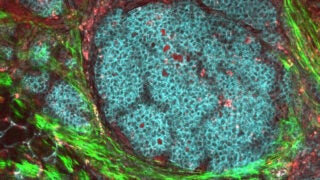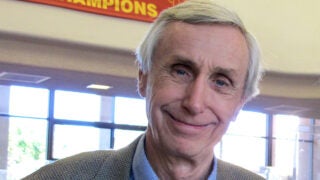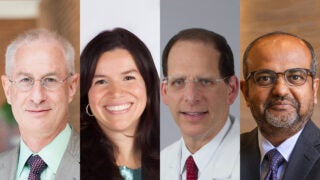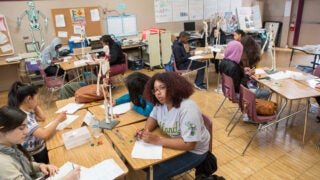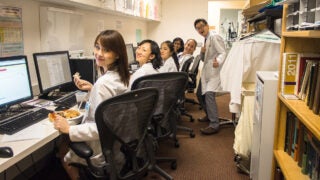USC Viterbi biomedical engineers have designed a protein that targets and disables tumor cells’ defenses while marking cancer cells for death.
Science/Technology
News Listing
Holland, lead singer of The Offspring, is an alumnus of USC Dornsife’s Molecular and Computational Biology program.
EARTH MONTH: Removing excess carbon dioxide from the atmosphere could go a long way towards slowing global warming, experts tell USC Dornsife event.
EARTH MONTH: USC Dornsife’s Wrigley Institute for Environment and Sustainability will use the Ballmer Group gift to study decarbonization strategies
Loop, a based startup co-founded by USC alumnus Matt McKinney, leverages AI to digitize shipment data.
Honorees join more than 40 USC faculty as fellows of the American Association for the Advancement of Science.
USC scientists find that adolescents who grapple with the bigger meaning of social situations experience greater brain growth, which predicts stronger identity development and life satisfaction years later.
Researchers at the USC-based Statewide California Earthquake Center contributed models that forecast earthquake ruptures for the U.S. Geological Survey’s National Seismic Hazard Model.
The National Institutes of Health gave ophthalmologists Sun Young Lee and Benjamin Xu reason to celebrate.
Mathematician Paul Newton will use the prestigious fellowship to investigate cancer models; composer Nicolás Lell Benavides will complete several musical works.

